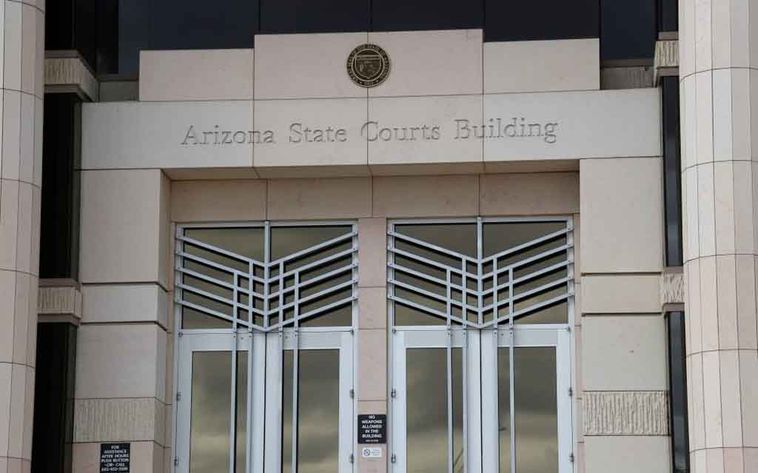Arizona Service of Process Rules - from A to Z



In Arizona, service of process may only be completed by the sheriff of the county, sworn deputies, or special process servers designated by the sheriff. Arizona Rules of Civil Procedure Rule 4.1 Private individuals may not serve process on other individuals or on business entities. The Arizona Revised Statutes defer to the Rules of Civil Procedure in service of process. There are other nuances too. Let’s look at the Arizona service of process rules in a bit more detail.
Who May Be A Process Server in Arizona
In Arizona, service of process may only be carried out by the sheriff, deputy, a registered process server, or individual appointed by the court (Rule 4.1(e). The party’s attorney can also be a process server in Arizona with the permission to complete service if authorized by the Rules of Civil Procedure.
A registered process server or appointed server must be at least 21 years of age and not be a party to the action, an attorney, or an employee to the attorney in the action unless otherwise permitted by the rules.
Special appointments for process servers can be requested by motion to the presiding Superior Court judge and the ruling shall be recorded by minute entry. These appointments will be granted freely and are valid only for the specific cause given in the motion. They do not qualify the appointee as a registered private process server.
State registration for process server may be done by application with the clerk of the Arizona Supreme Court. The application must be approved by the Supreme Court. The applicant must:
Be above the age of 21
Have been a resident of the state of Arizona for at least one year
Pass the process server exam
Submission of a fingerprint and pass a background exam
Completion of continuing education
Comply with ARS Title 11, Rules of Civil Procedure, and all other administrative rules
Registered process servers in Arizona may deliver documents anywhere in the state.
How May Arizona Service Of Process Be Delivered?
Personal service, that is, delivering the documents directly to the defendant, is the preferred method. In Arizona, personal service is accomplished by:
Delivering the summons and complaint to the individual
Leaving the documents with an individual of “suitable age and discretion” at their usual place of residence
Leaving a copy with an authorized agent.
If the defendant is a minor, a person under guardianship or mentally incompetent, the documents may be left with their parent, guardian, or conservator.
If the defendant(s) are businesses, LLCs, or corporations, service may be completed by delivering the documents to a registered agent, or by leaving the documents with a manager, secretary, or other person reasonably presumed to be responsible at the place of business.
Substituted Service
The Arizona service of process rules state that if an individual or business cannot be served by any other means, the court may allow service by any other method except publication. The server must detail all efforts made to accomplish service. The plaintiff’s motion should ensure the alternate method of service will give the defendant notice in sufficient time before start of the proceedings. Whatever method is used, the summons and complaint as well as the court order authorizing the alternate method must be mailed to the last known business or residence of the individual.
The defendant can accept service or waive service in writing. Their authorized agent or attorney may waive service by an appearance in court. This appearance has the same effect as service of a summons and complaint. The filing of a responsive pleading also constitutes such a waiver or appearance. Finally, if the defendant appears in court without a waiver or proof of service, they have waived service, and will be unable to claim improper service.
Service by Publication
As per the Arizona service of process rules, courts will only permit service by publication under the following circumstances:
When all other efforts to serve the defendant have been unavailing, including all possible alternative means, or,
The individual requiring service is an unknown heir in a real property action (Rule 4.1(m)), or,
The individual is known to be out of Arizona and cannot be served by any extrajudicial means (Rule 4.1).
Service by publication is completed by publication of the summons and a statement of the complaint or other pleading in a copy of a newspaper in the county where the action is pending and in a newspaper in the county where the individual last resided, if different. The notice must be published at least once a week for four successive weeks. Service is complete 30 days after the date of first publication, but proof of publication for all four weeks must be attached to the proof of service.
The server must mail a copy of the summons and pleading to the defendant’s last known address. An affidavit showing the manner and dates of publication and mailing, and the reason publication was needed must be filed with the court. A copy of the publication must be attached to the affidavit.
Other Types of Service of Process in Arizona
Family law cases are served in the same manner as other civil cases. In Title IV-D (child support and custody) cases, a DES investigator may complete service under Rule 40(e) for purposes of establishing parentage or for establishment, modification, or enforcement of support orders.
Probate cases require service of notice according to Rules of Civil Procedure 4, 4.1, and 4.2.
Eviction actions require two sets of notices. The landlord must first provide the tenant with written notice of the cause of the eviction, and give sufficient time to correct the deficiency before the process can be continued. The summons and complaint cannot be filed until after this time period has ended. Landlords should consult an attorney before giving their tenants any notice of legal action.
The summons and complaint must contain specific information about the cause of action. The complaint must include the language "YOUR LANDLORD IS SUING TO HAVE YOU EVICTED. PLEASE READ CAREFULLY.” A process server, the sheriff, or constable must serve the summons and complaint. They may be authorized to “nail and mail” the document, that is, leave a copy at the door of the building and send a copy certified mail to the tenants.
If the landlord is granted judgment, they must return to court in five days for a writ of restitution. If the tenant is granted judgment, they can remain in the residence. The landlord cannot engage in any retaliatory action, including eviction, if the tenant is allowed to remain in the residence.
Proof of Service in Arizona
If service cannot be completed, the process server must complete a proof of service form stating that the defendant could not be located. The affidavit must state where, when, and how service was attempted, what efforts were made, and that the server is a registered process server for the state of Arizona.
If service was completed, the document must be signed under penalty of perjury and returned to the plaintiff. The proof of service must be filed with the court.
Service must be made within 120 days of issuance of the summons. If the summons and complaint have not been served, the court may on its own initiative or upon motion dismiss the case without prejudice. The plaintiff may request extension of service with reasonable explanation of the reason for delay. This deadline does not apply to service attempted outside the U.S.

Associate Attorney


